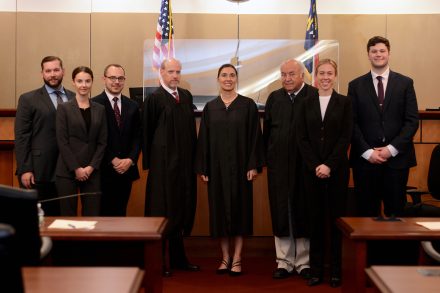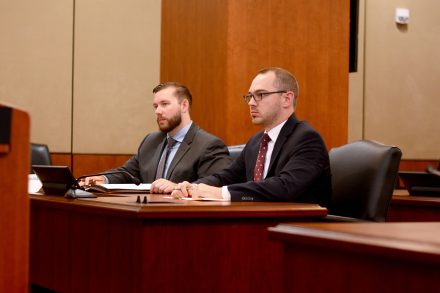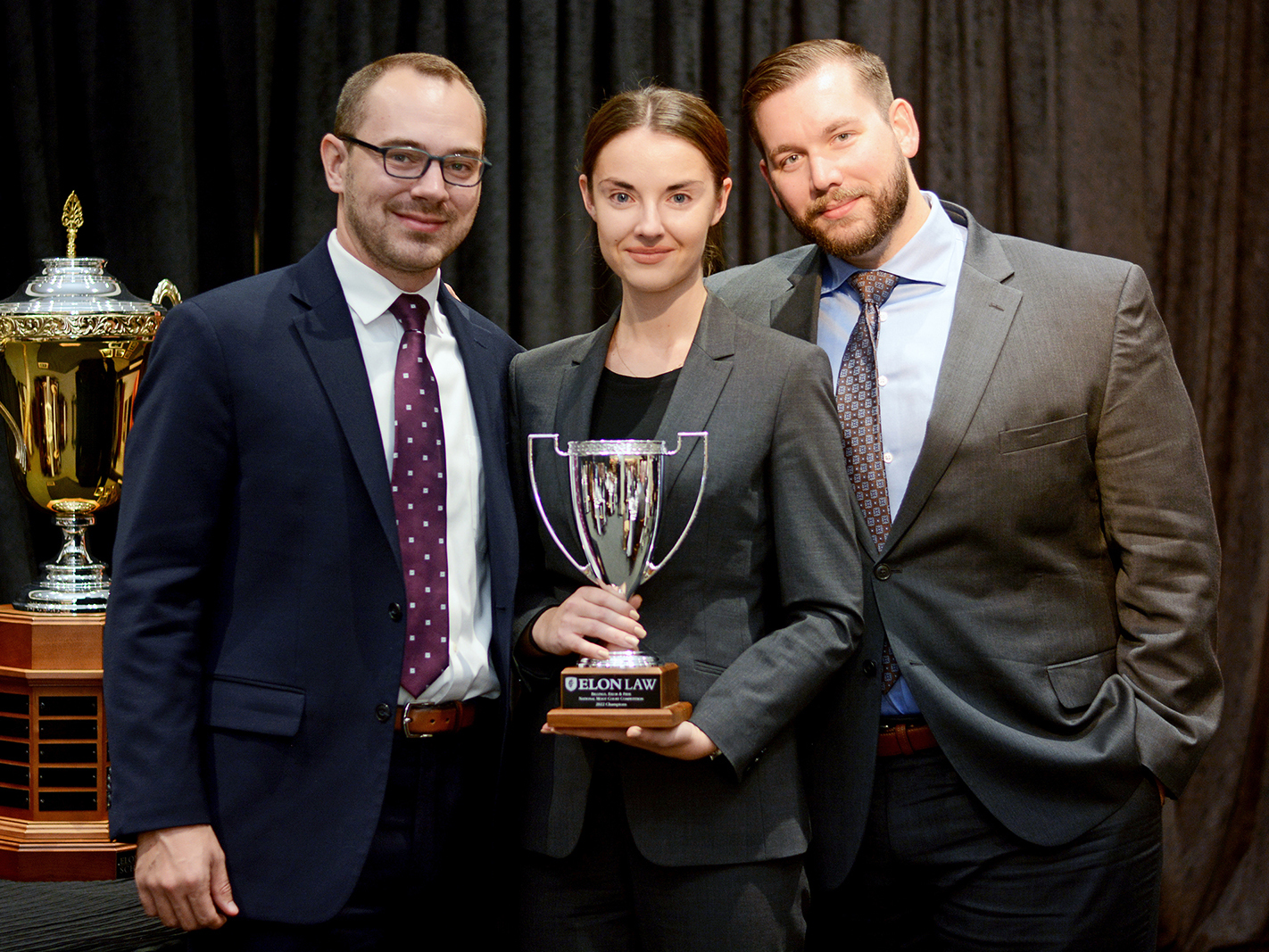Students from George Mason University’s Antonin Scalia Law School triumphed over 35 other teams in Elon Law’s 2022 Billings, Exum & Frye National Moot Court Competition, which saw participants argue a problem inspired by a Harvard/UNC admissions case now before the U.S. Supreme Court.
Is it time for institutions of higher education to be barred from using race as a factor in admissions?
And was a fictional university’s use of race as a factor in admissions process narrowly tailored to a compelling interest, keeping it in compliance with the Equal Protection Clause of the Fourteenth Amendment and Title VI of the Civil Rights Act?
Those were the questions at the foundation of the 13th Billings, Exum & Frye National Moot Court Competition hosted by Elon University School of Law’s Moot Court Board, which welcomed three dozen teams from across the country to downtown Greensboro in mid October for the law school’s first in-person contest since 2019.

The problem for Elon Law’s tournament from October 13-15, 2022, was inspired by a real case now before the Supreme Court of the United States challenging admissions practices at Harvard and the University of North Carolina-Chapel Hill.
By Saturday evening, Tom Dossey, Kevin Kehne, and Roma K. Diseati representing George Mason University’s Antonin Scalia Law School had claimed top honors in a closely contested final round against Katie Hoffecker and Avery Lubbes from St. Louis University School of Law.
Hoffecker was named the top oral advocate in both the final round and in the preliminary rounds. She and Lubbes were honored with the award for the best petitioner brief for the overall competition.
The winning team from George Mason University will receive a replica of Elon Law’s Chief Justices’ Cup and have its school name engraved on a permanent trophy that resides at Elon Law. Each individual member of the first-place team will also receive a plaque.

Interim Dean Alan Woodlief, director of Elon Law’s Moot Court Program, praised the student-run Moot Court Board – which hosts the tournament but does not compete – for organizing one of the few in-person moot court contests scheduled this year among American law schools.
Woodlief also complimented the participating teams for the quality of their preparation and advocacy in the tournament.
“It takes a tremendous effort to organize and run a competition of this size, and our Moot Court Board members rose to the challenge and did a phenomenal job representing Elon Law to the many competitors, coaches, and judges who participated,” he said.
Final Round Judges
- The Honorable Anita Earls
North Carolina Supreme Court - The Honorable Patrick Auld
United States District Court for the Middle District of North Carolina - The Honorable Robert “Bob” Hunter, Jr. (retired)
North Carolina Supreme Court
Semifinal Round Judges
- The Honorable Ralph Walker (retired)
North Carolina Court of Appeals - The Honorable Richard Doughton
North Carolina Superior Court - The Honorable Sarah N. Lanier L’10
North Carolina District Court - The Honorable Barron Thompson L’09
North Carolina District Court - The Honorable Carrie Vickery L’09
North Carolina District Court - Gregg Schwitzgebel
Associate General Counsel, North Carolina League of Municipalities

Elon Law Moot Court Board Committee Co-Chairs for the 13th Billings, Exum & Frye National Moot Court Competition
- Emmanuel Agyemang-Dua L’22, Molly Bitner L’22 and Carson Pace L’22, Overall Competition Chairs
- Jeanette Carson L’22, Emily Maggio L’22, and Anna Ranson L’22, Bailiff Committee
- Kevin Claussen L’22, Jeffrey Hudgins L’22, and Kylyn Mondor L’22, Judge Committee
- Kaitlin Amalfitano L’22, Cameron Capp L’22, and Tamara Gomez L’22, Scoring Committee
- Morgan Stacy L’22 and Amanda Wagner L’22, Team Hospitality Committee



